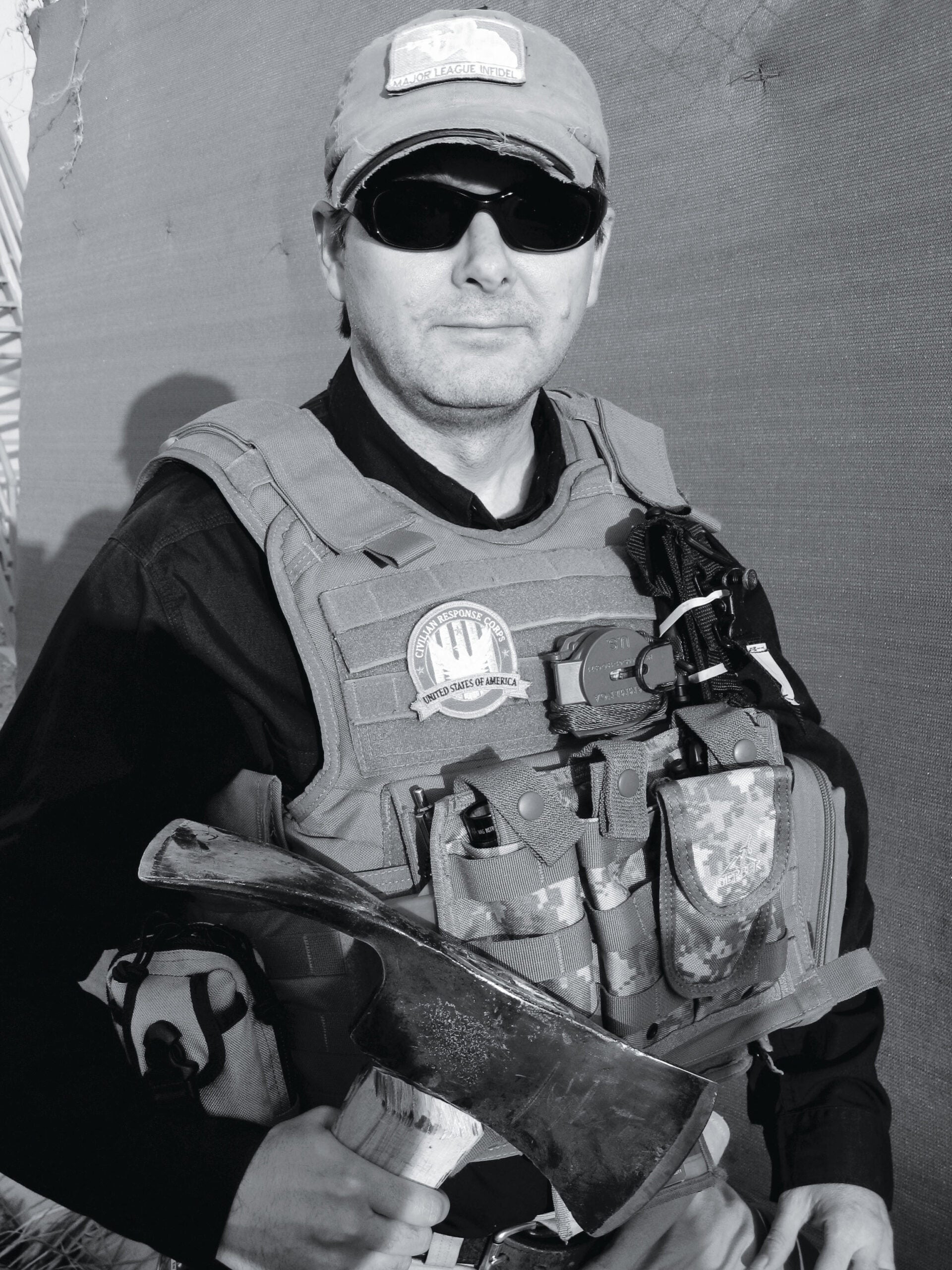Harry Bader ’88: At the nexus of natural resources, conflict and socioeconomic justice
Bader has traveled to some of the most dangerous locales in the world, including Bosnia, Iraq and Afghanistan, in an unusual hybrid of environmental and counterinsurgency work. The first person hired by and trained for the Office of Civilian Response of the U.S. Agency for International Development, which deploys civilian experts to conflict areas, he recently returned from his second six-month stint in Afghanistan. There, he worked on behalf of the Natural Resources Counterinsurgency Cell, a joint civilian-military operation seeking to “deny the enemy human and financial capital derived from the exploitation of natural resources,” as he describes it.
In Afghanistan, he found that insurgents would sell natural resources, particularly timber in mountainous regions, in order to finance their operations. As part of that effort, they attempted to recruit men who could influence their community to rally around the insurgency. In response, the NRCC worked with local people to identify and train these influencers in ways to improve their community, such as by building dams to protect villages from floods, with the idea that taking on such responsibility would drive them away from the insurgency.
“We targeted these individuals with the opportunity to lead and obtain respect in a manner that was different from the insurgents but provided the same incentives,” Bader says. “It’s not about money. It’s about the exercise of wisdom and judgment and character.”
While he facilitated such development projects for the civilian component of the operation, he also mentored military platoons and leadership in noncombat counterinsurgency efforts. That work exposed him to ambushes and firefights while he accompanied military units on patrol. He says that such attacks are simply part of the business he’s in. Though he was unarmed, he was extremely well-trained for such “kinetic environments,” he says.
Those environments have been a part of his life ever since he was a student at Harvard Law, when he traveled to El Salvador during the civil war to assess whether land reform and a lack of natural resources were affecting recruitment and support for the FMLN insurgent group. It was his first taste of an environmental security field on which he would later focus.
“The nexus of natural resources, conflict and socioeconomic justice is just fascinating,” he says. “There’s no shortage of where those three things come together.”
After graduating from HLS, he became a professor of resource policy at the University of Alaska Fairbanks, in a state that has held his imagination since he was a small boy growing up in the Midwest reading Jack London tales. While teaching, he also took to the field, including a trip to Rwanda with graduate students to examine how natural resources could benefit itinerant populations in the aftermath of the genocide. In Bosnia, he was captured and tortured by Serbian forces while pursuing ways to detect mass graves in forests, according to an account in The New York Times, an incident he doesn’t want to discuss because information he collected may be used in ongoing prosecutions. Despite that incident and others in which his life was in peril, he downplays the dangers involved in his work, saying that his friends in Alaska do far more daring and dangerous things, like mushing, hunting grizzly bears and climbing mountains.
He still maintains a home in Alaska while based at USAID headquarters in Washington, D.C. Before starting with the Office of Civilian Response, he had established his own consulting firm specializing in resource management issues in challenging environments. He called it the Betula Group, named after a genus of the birch tree that spreads from the equator to the poles. It will spring up just about anywhere, and so will he.
